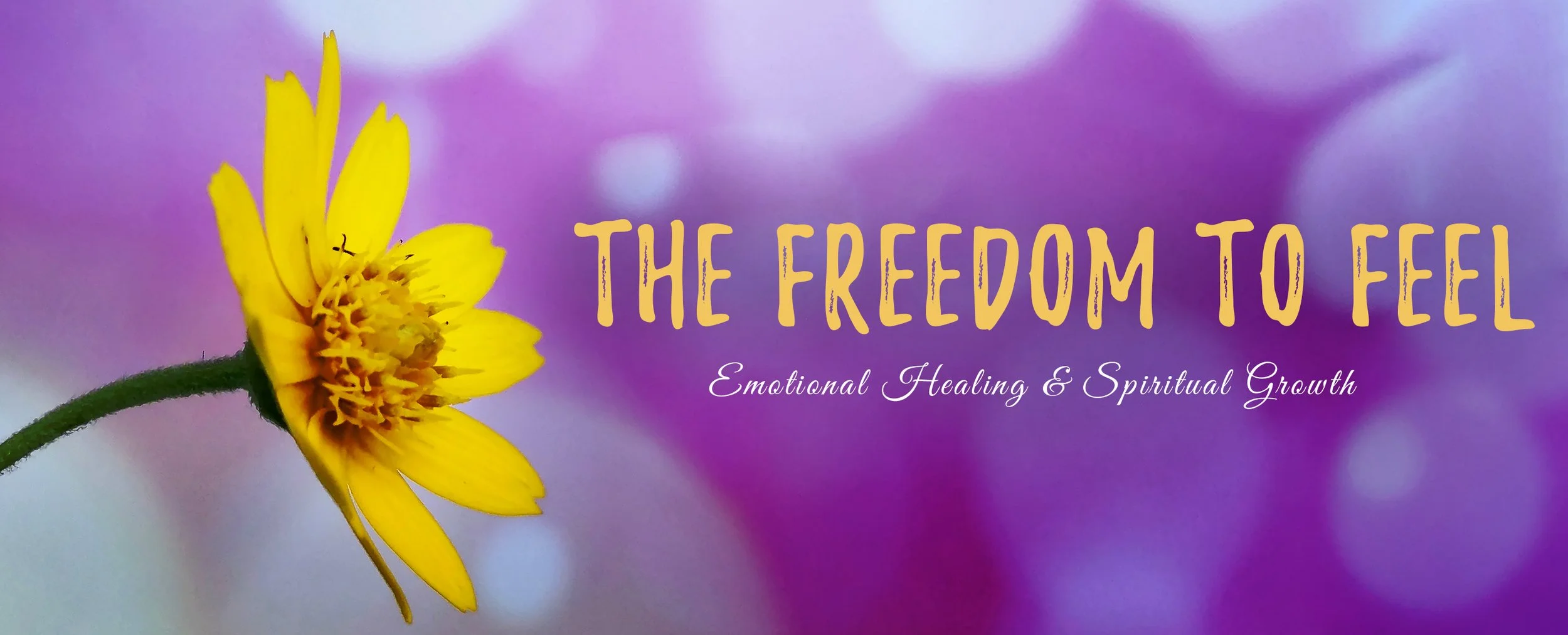LOVE EACH OTHER, AND ENJOY THE RIDE
The world can be a very scary place.
Everything seems to change daily.
Uncertainty in every aspect of life surrounds us.
We are all faced with one tragedy after another. On any day you can read about plane crashes, politics, racism, opioids, politics, politics, politics—
NO MORE POLITICS PLEASE – but we do need to pay attention.
You may be wondering; how does this affect love?
The current divorce rate around 50 per cent.
Can you imagine the impact on the children?
On one hand, no wonder relationships are struggling, and the divorce rate is so high. We are living in a world of "me" time. Consumption is king.
We all need to take a deep breath and slow down. Life is moving too fast.
We need to get back to a day where we say “Hi” to our neighbors instead of fearing them.
On the other hand, it's not all bad: I'm happy, in fact, I'm individually optimistic, yet, globally pessimistic.
Can we change the course of things to come?
I don't know.
We've messed it up badly.
“I suggest in the future for those of you walking down the aisle could you please uncross your fingers and take your tongue out of your cheek.”
Just think about it for a moment. The family unit is in a state of crisis; the institution of marriage may be failing.
I suggest in the future for those of you walking down the aisle could you please uncross your fingers and take your tongue out of your cheek. You're only screwing up your kids and, in turn, our world.
If everyone meant, “till death do us part,” the divorce rate may only be 20-25 per cent resulting in:
At least a 50 per cent reduction in unwanted children, in turn resulting in:
A smaller global population, in turn resulting in:
Less consumption, in turn resulting in HOPE!
Wait a second, if that was the equation. I might not exist.
We have certainly left one messed up world for the next generation to try to fix. It's too bad that most of them come from broken homes. How are they going to fix the world, when they can't even fix themselves?
My radical suggestions:
Be aware of what is going on in "our" world.
Look at yourself first and the people in your life who matter and try to encourage, nurture and love.
TURN OFF THE NEWS.
Laugh, smile and cry from time to time. Have a blast. Treat others with kindness. Make your “moments” memorable. Don't have kids just for the sake of it - kids aren't puppies.
Avoid confrontations: life is too short.
And, most important, remember to hug each other.
If you do find yourself in a relationship that isn’t working, that’s okay, cherish the good parts, and move forward in a positive fashion.
We may not be able to fix the mess; however, we can have a blast during the ride.
This article was written by Lindsay Wincherauk.
Click HERE to Learn more about his work.
www.lindsaywincherauk.com
INSTITUTIONALIZED MINDS-CONFLICTED LIVING
Every religion has their members admit they are not what their God would have them be. An example is one segment of Christianity. It says it is the result of the Sin Nature that is the result of the original sin of Adam and Eve and transmitted to every human like DNA.
Their human reasoning, as to the cause, gives remarkable human Institutional reason for the cure. First they divided sin into Mortal and Venial sin. They must first be confessed to a priest, and if you die without making another mortal sin you go to heaven. If you die with an unconfessed mortal sin, you go to hell. If you die with an unconfessed venial sin you go to Purgatory and after that time in Purgatory you get to go to heaven.
Don’t laugh. One billion souls live every day under that curse. They live because they believe in the Institutional truth in the Sin of Adam and Eve is the reason for their “Sin Nature.” Others say it is ratified by the Atonement of Jesus Christ “who died for your sins.” If you believe in Him that will do the job of confessing. Why do you have a sin nature? Organized religions have failed in their mission because their leaders fell in love with their dogma instead of their god. Something has to change! What has to change first is our belief in why people act selfishly. Well I will give you another perspective. It is the unchallenged, initially rewarded, and culturally reinforced approval of “I Want What I Want When I Want It. (Hereinafter identified as IWWIWWIWI, The Kinkul.)
Did you know there are thousands of Kinkuls born every day. Kinkuls look like this when they are born. (Baby picture), Their mommies and daddies call them babies, but they are not…they are Kinkul motels! What makes them a Kinkul motel is the IWWIWWIWI caterpillar. Some how that ol’ Kinkul gets inside the baby and they arrive in this world together at the same time. No one knows where the Kinkul lives, but I think it lives in the baby’s brain right behind the eyes and just between the ears.
At first, the Kinkul is very helpful to the baby. When the Kinkul is hungry it bites the baby. And you know what happens then, the baby lets out a big caterwauling cry. And you know what happens then? Mommy and Daddy, and anyone standing close, comes fluttering to the Kinkul and starts feeding it with good tasting stuff. The Kinkul likes that and so does the baby. When the Kinkul feels wet, or thirsty, or cold, or hot or tired, the Kinkul bites the baby and the baby lets out a big caterwauling cry and Mommy or Daddy or anyone standing close come fluttering to the Kinkul and makes the Kinkul comfortable. The Kinkul likes that and so does baby.
The IWWIWWIWI caterpillar is as natural to the baby as its hands and toes. The Kinkul uses baby’s caterwauling cry to get what it wants when it wants, long before baby is able to use its hands or feet. The Kinkul knows, long before baby knows, that it’s hungry, or thirsty, or wet, or cold, or hot, or sick. The Kinkul is as much a part of a baby as its heart and just an invisible to Mommies and Daddies. That’s why a Kinkul that wants what it wants when it wants it isn’t being bad…it’s just being a Kinkul, which happens to live in a Kinkul motel, that Mommies and Daddies call baby.
After baby has lived with Mommy and Daddy for more than a year, neither baby nor the Kinkul has reason to think it shouldn’t get what it wants when it wants it, even when it doesn’t know what it wants. Mommy and Daddy and anyone standing near has made sure that what a Kinkul wants, a Kinkul gets, and baby likes that.
Think on it. The only tool, or weapon, a baby has to fend for its life, is crying. And it works. Why wouldn’t it think selfishly. What else does the baby know exists? It is how the institutions handle the maturational process that signifies why the institutional minds create conflicted living.
This article was written by Lawrence McGrath.
Lawrence wrote the book: A Cry From The Heart: A Personal Essay
Mr. McGrath is an author, father and grandfather. A retired marine pilot, lawyer, college professor, college president, bank president, and consultant.
Finding Pleasure and Joy in the Combination of Contrasting Experiences
No doubt about it, life can—and undoubtedly will—have its challenges. For a variety of reasons—some self-imposed, some not—there are bound to be times in your life when you experience some fairly undesirable situations.
In those circumstances, you may experience fear, sadness, disappointment, or anger. But believe it or not, underneath it all, there will also be . . . joy. Not joy in the typical sense of feeling elated in the moment, but the joy of your inner divine spirit. It's the kind of joy that embraces all of life and living . . . not just the peaceful parts.
Consider this: When you go to an amusement park, don’t you choose to go on the scary rides as well as the more pleasant ones? Why is that? Isn’t it because you feel fundamentally safe? And isn’t it the combination of those contrasting experiences that brings you pleasure—even joy?
So it is with your divine spirit. To your spirit, life is one big amusement park. And since your spirit is eternal and indestructible, it always feels safe enough to enjoy (to have joy in) the experience of life as a whole.
Are you experiencing some kind of stress or distress in your life right now? Then remember to take a moment to affirm who you truly are at the core of your being. In prayer and meditation, consciously connect with your inner divine essence—your eternal spirit—and get in touch with the unending joy that resides there. It’s the joy of just being alive and in the world. And it’s a joy that is there no matter what kind of ride you happen to be on.
This article was written by Steven Lane Taylor.
Click HERE to Learn more about his work.
WEBSITE: www.rowrowrow.com
COURAGE AND PROSPERITY
It takes courage to show up for prosperity.
What if you just showed up for yourself today? What if all it took to build the prosperity you crave was to be profoundly present in your own life, in your own body, in your own story? Do you have the courage to live with this depth of belief and authenticity, to be alive in the moment regardless of the risks?
It is safer to live in the past, ruminating, remembering, re-writing, and grieving, than it is to live in the present. The past is familiar territory; we know what will hurt and what we can rejoice in. We made that great play, or we missed the mark. We chose love or career or adventure, for good or bad, and we know how the story goes. There is safety in this predictability, even if it is painful.
It is easier to worry about the future, or to spin great stories in which we play the starring role, than it is to begin the work before us. Our dreams are safe, requiring no investment of energy or time. And we can blame our unfulfilled dreams on some vague past event that we label as a pivotal moment, spreading the blame across space and time and people. We can create amazing futures, but only from the present. We can learn from our past, but only when we are alive now. It is only in this moment that sensuality and love exist. It is only in the now that we can experience and build and create and grow. We are truly alive only in real-time, in the gift of this moment.
And when we have the courage to incarnate fully in the moment we have the power to create a prosperous reality. When we face our fears of being wonderful beings of light, when we are willing to release the wounds of the past, we will without effort find we have embraced our deepest truth and power. This is the home of love and manifestation, and the foundation for prosperity.
This article was written by Elisa Robyn
Click HERE to Learn more about her work.
https://elisarobyn.com/
COMPASSION IS THE HIGHEST FORM OF LOVE
Love is the total giving of oneself without agenda; not asking for anything in return or holding anything back. Compassion, being one of the highest forms of love, is the understanding of lack of understanding in another being, as well as within ourselves. It allows for us to express loving kindness in the face of ignorance.
It has been said that the only problem we only ever have is ignorance. This is true. None of the harmful deeds us humans perform are born out of malice or ill will. They merely arise from a small and limited perspective of the true nature of reality.
Most individuals are trapped in the egoic illusion of lack and separation. The ego’s mantra is: I am not enough, and there is not enough. Caught in that misperception, an individual believes that the only way for them to be and have enough is to try to get it from the world. And so they move through life seeking worth and validation from the outside world. They live under the impression that they have to compete for it and to ultimately (hopefully) win it.
From this perspective, hurting or harming another individual, seems legitimate since life is a competition. Like the survival of the fittest if you will. This is the life in and with the ego.
Choice is a function of awareness
Now as we grow and unfold spiritually. As we mature. As we come into greater and greater insights, we realize that we live in a cosmos where there is only abundance and unity. There is only one Divine Whole. And nothing is ever separated from anything else.
As we realize this, we also begin to realize that when someone is in the grip of the ego, there is no need for blame or guilt. They are merely more or less temporarily unconscious.
From this higher perspective, we realize the futility of placing blame when someone does something we are triggered by. They are merely reacting that way because the lack they the understanding to act in any other way. They have merely gone unconscious, and we happen to be in the vicinity of them at that moment.
Much in the same way we don’t blame a small child for not yet having learned to read, ride a bike or not make a mess when eating. We realize that they are in the process of learning. In that process, they have only learned what they have learned in any given moment.
It is said that choice is a function of awareness. This means that in order to be able to make a choice - we need to be aware that we get to choose. If we are not aware that we have a choice then effectively cannot make that choice.
Compassion is the understanding of lack of understanding.
Compassion then, is the understanding of this. It is the understanding that when an individual reacts as oppose to responds, they do so merely because they are not aware of the options.
They are not aware that there is another way. That they can choose to respond to a situation or circumstance with love rather than fear, worry or doubt. Obviously the same goes for us.
The best response to any situation, any circumstance, any individual is that of love and compassion.
Choose love and compassion over fear, worry, and doubt.
And so, whenever we are faced with the ignorance or unconsciousness of another individual – we may gently remind ourselves that it has nothing to do with us. We need not ever take it personally. At this moment they are merely unconscious. And we just happened to be there to witness and experience it.
We may also remind ourselves that all is working for our good. As we encounter an unconscious individual, we get to practice being loving and compassionate. In other words, it is a great blessing in terms of growth and unfolding.
And so, rather than placing blame and guilt, playing out the victim card as to being the victim of another’s harmful actions - we may choose to pray for and bless them. We may choose to pray for their wellbeing, for their peace of mind. We may call forth the perfect and Divine health that resides within each being. We may choose to take on the perspective that they too are on a journey and that they too, in the process of waking up, of learning - are exactly where they need to be.
This is compassion. This is loving kindness in action. Praying, blessing and wishing someone well - even when what they did or did not do, may seem harmful and hurtful.
The Love of God dwells within each of us, we merely need to become aware of it and choose it.
Daniel Roquéo is a freelance writer and founder of The Love & Light Store.
He helps individuals, entrepreneurs and businesses do what they may not have the time, inspiration or the skills to do for themselves. Bringing their passions to life through the written word.
https://www.theloveandlightstore.com/
EMOTIONAL INTELLIGENCE - WELLNESS-MINDFULNESS
Mindfulness involves an awareness of the here and now, and a mindset that is open and receptive to new ideas, information and experiences. In substance abuse treatment, mindfulness can be a way to cope with feelings, stress, triggers and urges and a way to manage stress and anxiety. Mindfulness can be the difference between responding effectively to the trauma symptoms that often co-occur with substance abuse, and a relapse to substance use to escape the unpleasant symptoms.
Mindfulness, if practiced regularly is a positive skill that counteracts one’s self-destructive behavior. It is not an escape or a means of avoidance. It is a way of staying present with pain and discomfort, rather than fleeing from pain and discomfort. Instead of staying compulsively busy to avoid an urge, running from an urge or giving in to an urge by using; a person practicing mindfulness observes and accepts the urge, and rides it like a wave – knowing that every urge has a beginning, middle and end - and that this one too will pass.
Mindfulness is a way of engaging the mind in response to any stressor, situation, interaction or activity that is causing any distress on the Physical, Emotional or Spiritual of you. Mindfulness helps a person recognize strong urges or feelings as invitations to accept or decline after careful consideration, rather than commands to act immediately. Mindfulness allows a person to remain calm under fire, then choose a response to a stimulus that is in his/her short-term or long-term best interest.
Skills Defined
There are mindfulness skills that need to be learned and practiced. When practiced routinely, it will be easier to call upon the skills at any time and to apply them when needed. Part of the beauty of mindfulness practice, is that the practice does not necessarily require sitting in a certain position or closing the eyes. Mindfulness can be practiced and skills during activities and as part of the activities. Some essential mindfulness skills are:
Awareness: Awareness involves focusing attention on one thing at a time, while at the same time recognizing that there are many things going on. Some of these things are external such as sounds, odors, touch, and sights, while some of these things are internal, such as our feelings thoughts, urges, impulses, etc.
Non-judgmental: The emphasis is on observing without judging or labeling things as “good” or “bad.” The idea is to observe my angry feelings without judging them as bad or feeling a need to get rid of them or do something about them. It’s like holding my anger at arm’s length and just noticing that this is anger. Then understanding that not only is it anger, but that it’s ok that it is anger and even understandable that anger would be there.
Present Moment: A present moment focus or being in the present moment means fully participating in the present without being distracted by guilt from the past or worry and anxiety about the future. It means engaging in activities that are meaningful today, not just mindlessly doing what I have always done or going through the motions without attention to what I am experiencing.
Open Mind (or Beginner’s Mind): An open mind or beginner’s mind is childlike (not childish). It is being open to new experiences and seeing them as they are; not how you have judged them to be or think they should be. If I attend an event with the mindset that “this is going to be a waste of time,” I have a preconceived notion about the event that prevents me from experiencing the event as it is. Likewise, if I already know it all, I’m not open to learning anything new, or experiencing the joy and bliss of learning.
A Beginner’s Mind is what a child has who experiences something for the first time.
This article was written by Marc Baisden, MACP, MIN
Click HERE to Learn more about Marc Baisden.
https://www.alignable.com/anchorage-ak/recovery-intervention-services
MENTAL HEALTH AND REAL HEALING
A recent Wall Street Journal special report on health care included a revealing article titled “Where Are the Mental-Health Providers?” Reporter Louise Radnofsky presents convincing evidence and sounds the alarm about the increasing difficulty of finding much-needed mental health care in many regions of the United States.
Radnofsky quotes statistics from a recent study by Mental Health America, a patient advocacy group. The study found that while 42.5 million adults in the United States have a mental illness (18% of the population), the ratio of mental health providers to people in the US is just 1:790, while only 41% of people with a mental illness report receiving treatment.
“That’s prompting a sea change in attitudes among mental health advocates,” Radnofsky writes, “who are starting to look at solutions that are broader than just training more psychiatrists.”
It’s about time. In this month’s article and book excerpt, I explain my thinking on the Dr. Jekyll and Mr. Hyde nature of trauma treatment by psychiatrist-prescribed medications. I will stress again that there is an important role for psychotropic drugs in effective therapy. But—too often—drugs are presented as the complete answer for trauma sufferers. Nothing could be further from the truth.
Chemically locking away traumatic memories may help people temporarily, as I’ve outlined above. But I firmly believe that the hope for healing lies in unearthing and resolving the painful past. Drugs can make this process all but impossible when patients have great difficulty accessing their memories. And, over time, serious and life-compromising side effects of medication pile up.
Well-trained psychotherapists play a vital role in our nation’s mental health. I’m all in favor of greater recognition of this serious gap in our mental health system.
By Dr. Peter Bernstein
To read more of his articles, please visit: http://www.bernsteininstitute.com/blog/
*** "This article was written and originally published when Peter Bernstein, PhD was a licensed psychotherapist. His practice has evolved and he is currently a life coach, mentor and consultant."
THE TRUE WELL-SPRING OF WELL-BEING
It is natural and fundamental for living beings to want to be happy, healthy, and free from suffering. Life would not have persisted for nearly four billion years were living things not motivated to, and reasonably good at, seeking favorable circumstances and avoiding unfavorable ones.
When you consider much of what people do in our day-to-day lives, it is mostly in service of meeting our needs for food, clothing, shelter, and a sense of safety, satisfaction, and happiness. We don’t necessarily awaken each morning and say to ourselves how much we hope it’s swamped at the office, or that traffic will be absolutely gridlocked, or maybe we’ll get into a car accident so we can practice with being grateful for the time we have.
Yet we know, despite our deepest desires for how our life will be, that all sorts of things can happen, and many of them range from a little annoying to utterly devastating. Our children can become addicted to the painkillers in our cabinet the dentist prescribed us last year. We can get laid off from our jobs. We can be raped or mugged or murdered or diagnosed with untreatable cancer. We can be vegetarian, alcohol, tobacco and drug-free, run marathons, and still, have a heart attack at age 60. As the old saying goes, people make plans, and God laughs.
When trouble comes, we all get through it one way or another, sometimes more gracefully than others, always hoping to get back and remain in calm seas for smooth sailing. Then something else comes along: the flu, a torn meniscus, a child who develops asthma or depression. It will never remain smooth sailing for long; that’s just not how life works. And yet, somehow, we keep hoping that life will be something other than what it is.
It sounds crazy. Maybe it is. It seems human aspirations are doomed to be awkwardly incompatible with the vicissitudes of life. Indeed, in most if not all of us, there is an undercurrent of dis-ease, a fear about what is to come, that the moment of something terrible happening might be in our future, and not just someone else's whom we read about in the news. So, what to do?
About twenty-five centuries ago, a man named Siddhartha Gautama, better known as the Buddha, left home in search of a resolution to human suffering. After many years of searching, of trying many different things, and close to death and despair from neglecting his physical health and making little progress towards his goal, he had a breakthrough when he simply let go and let the storms in his mind be as they were. He settled more and more deeply into his pure, conscious awareness of all of his sensations, thoughts, and feelings. What he discovered was that human beings suffer when we want life to be different from how it is.
But it's not the desire per se: it's our attachment to it, our belief that our beliefs about how life should be or could be, are more important than how life actually is. This, of course, is foolish. It's not that we have no control over our lives and circumstances, it's that that control is forever limited, and many things will happen that we do not expect, and perhaps do not want.
Yet what he also discovered is that if we can detach from that belief that our wishes are more important than reality, we can begin to find real peace.
The key lies in our conscious awareness. The more we identify with and rest in our awareness, the more we can just be with the truth of how things are in this moment, the more a kind of magic starts to work on us.
We naturally let go of a struggle with life that is deeper and subtler than we ever imagined. We may never want to be sick or hurt or die but are no longer ill-at-ease with the difficult truths of life. It is analogous to someone who is so unfit that they cannot climb a flight of stairs without getting seriously out of breath, who then slowly begins to exercise, a little more with every passing week, until perhaps a year later, they are able to run a marathon. Their body naturally transforms by being more and more active.
So it is with a meditation practice where we simply rest ever more deeply in our awareness of what is. In doing so, we find well-being that is beyond sickness and health, beyond happiness and sorrow, beyond birth and death.
In some sense, finding this power within us changes nothing: we can still dream and plan, take care of our bodies and minds with healthy food, exercise, and rest and relaxation. We still take care of others. In another sense, it changes everything, because it transforms our relationship with every aspect of our lives, and frees us to do all of these things with greater presence, love, and patience.
This article was written by Joshua Sandeman
Click HERE to Learn more about his work.
www.linkedin.com/in/joshua-sandeman
GRATITUDE FOR A NEW LIFE
If you're a regular consumer of social media, you've most likely seen this question pop up on your news feed: "What if you woke up tomorrow with only the things you were thankful for today". It makes us all stop and think, in the moment at least, and offer up a few sentiments to the universe before going on with our previously-scheduled programming of stress, worry, and negativity.
But what if you considered making gratitude part of your everyday life?
Gratitude is a positive emotion. While some define it as "the state of being grateful" or "expressing thanks", I like this definition best:
“Gratitude is a thankful appreciation for what an individual receives, whether tangible or intangible. With gratitude, people acknowledge the goodness in their lives. As a result, gratitude also helps people connect to something larger than themselves as individuals – whether to other people, nature, or a higher power." -- Harvard Medical School
However you elucidate it, feeling and expressing gratitude has a positive impact on both you and others. I challenge you to find an article or video describing the ill-effects of gratitude. There are many reasons why we'd want to develop a heart of gratitude, and here are just a few.
A Healthier Body
According to Robert Emmons, leading researcher on gratitude and its effects, those who practice gratitude in a consistent manner report a host of benefits including stronger immune systems, lower blood pressure, and are less bothered by aches and pains. (https://greatergood.berkeley.edu/article/item/why_gratitude_is_good). In an article published in the National Communication Association’s Review of Communication, Stephen M. Yoshimura and Kassandra Berzins explored the connection between the expression of gratitude and physical health. They found that gratitude consistently associates with many positive health states and reduced reports of negative physical symptoms. (https://www.natcom.org/press-room/expressing-gratitude-makes-us-healthier-who-wouldn%E2%80%99t-be-grateful)
“Gratitude can be an incredibly powerful and invigorating experience. There is growing evidence that being grateful may not only bring good feelings. It could lead to better health.” – Jeff Huffman
Peace of Mind
Gratitude can also benefit our mental health. Emmons conducted multiple studies linking gratitude and mental well-being. His findings were that gratitude can increase happiness and decrease depression. And a study published in 2014 in the Journal of Applied Sport Psychology found that athletes can increase their self-esteem, an important component of mental wellness, by expressing gratitude. (https://www.sciencedirect.com/science/article/pii/S0022440507000386)
"Results indicated that counting blessings was associated with enhanced self-reported gratitude, optimism, life satisfaction, and decreased negative affect." In a separate study, children who practiced grateful thinking showed signs of more positive attitudes toward their family and at school. (Froh, Sefick, & Emmons, 2008).
Sleep Tight
And how about that elusive but necessary thing called sleep? A study done in 2016 by the U.S. Centers for Disease Control and Prevention indicated that more than one third of Americans don't get enough sleep. (http://www.healthcommunities.com/sleep-disorders/overview-of-sleep-disorders.shtml) Struggling to doze off, waking in the middle of the night, tossing and turning, starting the day feeling exhausted-- sound familiar? Try gratefulness as a sleep aid. One study showed that those who were grateful fell asleep quickly and slept more soundly, supporting evidence that more grateful people may sleep better because they have more positive thoughts when they lay down to go to sleep. Gratitude predicted greater subjective sleep quality and sleep duration, and less sleep latency and daytime dysfunction." (https://www.jpsychores.com/article/S0022-3999(08)00422-4/fulltext)
Make new friends
Gratitude can help with creating new relationships. A study led by UNSW psychologist Dr Lisa Williams and Dr Monica Bartlett of Gonzaga University showed that the practice of thanking a new acquaintance for their help makes them more likely to seek an ongoing social relationship with you. "Our findings represent the first known evidence that expression of gratitude facilitates the initiation of new relationships among previously unacquainted people," says Dr. Williams.
But how?
Gratitude acts as a strengthener of our positive emotions, like exercise is for muscles. This practice of appreciation eliminates feelings of envy and angst as it allows our memories to be happier. Through gratitude, we experience positive feelings, which in turn help us thrive after disappointments and failures. It shifts our attention away from toxic emotions and makes it harder to ruminate on negative events. In a study done by Joel Wong and Joshua Brown in 2007, involving 300 subjects who were seeking mental health counseling, they found that when people are more grateful, they experienced brain activity which is distinct from neurological activity related to a negative emotion such as guilt. In addition, they exhibited a greater neural sensitivity in the medial prefrontal cortex, the part of the brain associated with learning and decision making. (https://greatergood.berkeley.edu/article/item/how_gratitude_changes_you_and_your_brain)
Now what?
Though we may understand the many benefits of expressing gratitude, incorporating it into our day-to-day lives can be tricky. Life's pressures bear down on us and staying thankful often doesn't come naturally...negativity does. But with a little effort, it is possible to maintain an attitude of gratitude. Here are some ideas to try:
1-Eat thankfulness for breakfast. Literally, don't allow yourself to get out of bed until you've said, out loud, at least 5 things you are thankful for, whether great or small. Pause after each and soak in the warm, positive feelings that are associated with each. It's a healthy and optimistic way to start each day.
"Wake at dawn with a winged heart and give thanks for another day of loving." — Kahlil Gibran
2-Fill a thankful jar. Find a colorful jar at a local thrift shop and set it somewhere you can see it throughout the day. On a scrap of paper, jot down anything and everything that happens each day that makes a positive impact on you: a kind word from a colleague, a surprise gift from a loved one, the beautiful sunrise on your way to the office, the aroma from your pumpkin spice latte. Wad these up and throw them in your jar, then, at the end of the year, spend an evening reading through each special moment. You'll feel like the richest person in the world.
3-Say it. Get in the habit of saying "thank you", to everyone you interact with...the barista, the security guard, your coworkers -- even those you don't get along with. And don't forget to thank yourself -- self-love is an important part of maintaining a positive outlook -- and taking time to appreciate your own accomplishments, achievements, and successes can help with that. "I appreciate you" is a great ending to almost any email or text!
4-Let gratitude tuck you in at night. Before going to bed, try opting out of scrolling through what everyone else in the world is doing, and instead, journal about a positive event from today It may be as small as, "I got out of the house without spilling my coffee", or as grandiose as realizing a long-term goal -- but no matter the significance, get in the habit of writing the positives down.
"Gratitude is the fairest blossom which springs from the soul."– Henry Ward Beecher
And who knows, your own attitude of gratitude may be just the encouragement someone else needs. Don't be surprised if, as you grow in expressing gratitude, that others will want a piece of the pie. Joy is contagious and when others seeing you living a life of physical health, mental health, sleeping deeply and enjoying healthy relationships -- to name a few -- they will want to learn your secret. If not for yourself, consider developing a heart of gratitude to be a light to others.
“At times, our own light goes out and is rekindled by a spark from another person. Each of us has cause to think with deep gratitude of those who have lighted the flame within us.” – Albert Schweitzer












